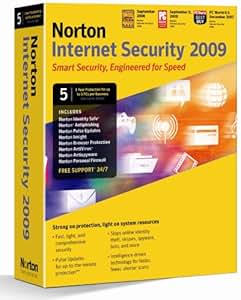

However, since we all use these tools every day, our security systems must be easy to use and understand. Ease of Useįor the layperson computer user, how cybersecurity actually works might feel a bit like magic. It's important to address all potential threats. Viruses and other malware are important, but there are many more dangers. These additional aspects of an internet security suite are what help you get full protection. Other things these tools do is protect you from identity theft by monitoring your accounts and by scanning your web activity to make sure you're not giving out sensitive information to untrustworthy sources.įor example, if you've entered your credit card into a website you've never visited before, you may get a message that asks you to confirm this. Internet Security Suites that do this are those that offer you the ability to browse using a Virtual Private Network (VPN), which encrypts your WiFi connection to make it more secure and also to prevent your web activity from being tracked, which many see as a major invasion of personal privacy. We also look for security suites that don't just focus on the software threats but that go a step or two further to help you stay safe from the many different threats out there. We ran tests on the different suites we reviewed to see how well each one did in finding unwanted and infected software and either alerting you of it or immediately moving to remove it. Email protection is also important, especially considering how effective phishing continuously proves to be. This means it must be able to effectively identify and, when necessary, eliminate malware, ransomware, spyware, adware, and any other malicious software that is trying to install itself on your computer.Īlso, your suite should be able to keep you protected from bad websites and the links they encourage you to click by using some sort of web browser tool to alert you when you're in a bad area. When comparing the different Internet Security Suites on the market, we took into account the following characteristics of the different services to help us choose which ones we consider to be the best.įirst and foremost, an Internet Security Suite must be able to keep you protected from the many different threats that are out there. How to Choose the Best Internet Security Software Some focus more on certain threats and less on others, which is why it's important to know all the different things Internet Security Suites can do so that you can decide which approach is most relevant to you and, therefore, which piece of software will best meet your needs. However, not all suites are the same in that they each take different approaches. In this sense, you can think of an Internet Security Suite as your own personal security team, protecting your cyberspace from all directions at all times.

This is because they are programs that do many things in the background to ensure you are safe.Īdditionally, they cover multiple areas of security, helping to keep you protected from all angles. The types of internet security software we are going to be reviewing are most often called Internet Security Suites. ,, ,, , What is An Internet Security Suite? To fully understand why it's so important to have a robust internet security system, consider the following stats about cybercrime, online fraud, and privacy: We conducted a rigorous review of the many different products out there and came up with the list of 2020's best.

To do this, you need to start by practicing safe digital habits, but you also need the right tools, one of which needs to be solid internet security software.Īs this is so important, the stakes are high when you're shopping for internet security software. The same is true for the internet we need to put up excellent security systems to keep it the safe and wonderful place that it is.

Instead, we put better security systems in place and have dramatically reduced the danger. We haven't stopped flying on airplanes after we realized they could be used for evil. However, just because these threats exist doesn't mean we should back down. Plus we haven't even begun discussing the threats we face to our personal privacy as a result of putting so much of our lives into the digital space. The risks we face range from a loss of data due to a computer virus, also known as malware, to financial loss to full-on identity theft, which can freeze your life in its tracks. The internet has given us so much freedom and opportunity that it's often easy to forget that our constant connectivity leaves us vulnerable to many threats.


 0 kommentar(er)
0 kommentar(er)
